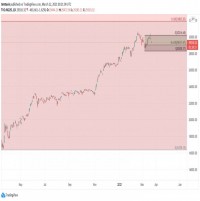|
We started working on this research paper (see reference link) as part of the requirement to complete our Bank Management course during our undergraduate studies, but what brought us together was the keen desire shared by all of us to explore the development of Islamic banking and finance (more than to have a publishable research paper). One of the key lessons from the course was in terms of developing a relevant topic, brainstorm the arguments, setting problem statements, stating the objective of the study, and performing the actual research questions. Developing this entire process at the outset was critical for us to succeed, and from here we had a much easier task of analyzing the data and constructing the final paper. This discursive
research paper departs from our concern regarding the current development of
Islamic banking & finance in which there is a divergence of direction of the
current Islamic finance practices from the initial ideals/visions enshrined in
the objective (Maqasid) of Shari'a. Specifically, we scrutinize how debt-based
financing has proliferated through a legal ruse (hiyal) with a fancy Arabic
name, rather than promotion of equity financing, which is genuinely in line with
Maqasid Al-Shari'a. Therefore, our paper scrutinises the danger of
debt-financing and exposes the importance of equity financing for Islamic
finance in light of Maqasid Al-Shari'a coupled with equity financing's
misgivings. The extensive elaboration of the arguments for this paper includes a
wide survey of academic literature and authored material by Islamic economists
and Shari'a scholars.
In that sense, such additional resources would allow us to examine the
reasons why there is a lack of implementation of equity financing and what kind
of incentives can be developed for industry players to design (and implement)
such products. Thereafter, the findings of that field work could then be used
as valuable feedback for scholars and practitioners to develop their arguments
in a more holistic fashion. In this regard we believe there is a close
alignment between academia and practitioners to promote equity financing in the
industry. Your feedback and comments are very important to us, please feel free to contact the author via email. |
Opalesque Islamic Finance Intelligence
Kulliyyah Korner:Debt versus Equity Financing in the Light of Maqasid al-Shari'ah By Eddy Yusof, Ezry Fahmy, Kashoogie, Jhordy and Anwar Kamal, Asim |
|





 RSS
RSS








